 |
 |
| current issue |  |
past issues |  |
send a letter/news |  |
address update |  |
advertise |  |
about us |  |
alumni home |
Previews
Books, music, art, theater, film, and danceby Anne Downey '95G
The Dead Beat, by Marilyn Johnson '78G
The Best People in the World by Justin Tussing '93
Overviews:
Books:
Wayne A. Sinclair '58 and Howard Lyon
Franklin F. Gould Jr. '66G
John Smolens '82G
Kathleen A. Kendall-Tackett
John D. Davis '61, '63G
Jeannine Atkins '84GMusic:
Bob Lord '98
Bill Ross and Steve CooperAlso of Note...
Terry Piper '69, '74G
Greg S. Goodman '73, '75G and Karen T. Carey
UNH professor of English Deborah Brown, Annie Finch and Maxine Kumin
The Dead Beat
Lost Souls, Lucky Stiffs and the Perverse Pleasures of Obituaries
See at amazon.com
People read obituaries for a variety of reasons, but increasingly it is because they contain some of the liveliest and best writing in newspapers, as Marilyn Johnson '78G shows in her delightful new book.
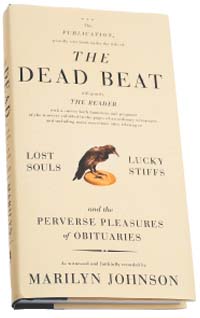
Prior to the 1980s, the dead beat was covered by rookie reporters, and obituaries were formulaic and, well, dead. But then a circulation war broke out in Britain, and obituary writing became, according to Johnson, "a competitive sport." At the same time in America, a handful of writers began to prove that "a little life well-lived is worth talking about," by honing the form to folk art.
Johnson's book is both history and homage. In Britain, obituaries are playful, funny and often rude. "The Third Lord Moynihan, who has died in Manila, aged 55, provided, through his character and career, ample ammunition for critics of the hereditary principle. His chief occupations were bongo-drummer, confidence trickster, brothel-keeper, drug-smuggler, and police informer," reads an obit from the Daily Telegraph.
In America, Jim Nicholson wrote obits for the Philadelphia Daily News for 19 years, and his appreciation of "ordinary joes" translated into great journalism. His obituary of "Big John" Ellis, for example, reads in part: "His pet saying to friends was, 'Shut up, fool.' Shirley Ellis hadn't been married to Big John long before she realized he was special. 'We couldn't go anywhere. In New York, he'd holler, 'Shut up, fool,' and someone across the street would holler back, 'Hey, Big John.' It was that way in Washington, Wildwood, Atlantic City."
Johnson was once a staff writer for Life Magazine, where she wrote obituaries on Princess Diana, Jackie Onassis and Katharine Hepburn, among others. She says discerning obituary readers want to know, "Whose time am I living in? Was he a success or a failure, lucky or doomed, older than I am or younger? Did she know how to live? Tell me the secret of a good life!" Her book—like a great obit—is charming, hilarious, poignant and inspirational.
The Best People in the World
See at amazon.com
It is 1972 in Paducah, Ky., a town rimmed with a concrete wall built by the Army Corps of Engineers to prevent flooding from the Ohio River. The narrator of Justin Tussing's beautifully crafted first novel, 17-year-old Thomas Mahey, is telling the story from an unidentified point in the future and he finds the wall "so monotonous it was almost Soviet." He is beginning his junior year in high school after having completed a summer job at the power plant where his father works; a job is a privilege, his father tells him, but everyone looks as bored as Thomas feels.
Then Thomas meets two people who flood his heart: his 25-year-old history of technology teacher, Alice Lowe, with whom he begins an all-consuming love affair; and the town misfit, Shiloh Tanager, a shaggy, technically gifted "river rat" who lives in a ramshackle shed on the periphery of respectability. Alice is trying to escape a failed marriage, Shiloh says he is trying to "rebuild my heart" after a mysterious tragedy, and Thomas is tired of waiting for his life to start. Sparks fly, and the three form a family of sorts, taking off in Alice's Plymouth.

They end up in Vermont, squatting in an abandoned farmhouse in the middle of nowhere, trying to create a life of simplicity and grace. Interspersed with this main narrative is a sub-plot involving two men who are investigating alleged miracles on behalf of the Catholic Church. "Faith is a tool to allow human beings to contemplate the divine," one of the men says. "It is wasted if it is only used to consider other human beings." The plots eventually collide, and the reader is left to decide about the true nature of divinity.
A graduate of the Iowa Writers' Workshop, Tussing is a visiting assistant professor of English at Lewis & Clark College. He has identified both Miguel de Cervantes and Saul Bellow as influences, and Thomas is certainly descended from Don Quixote and Henderson the Rain King. A romantic out of step with his time, Thomas trusts in ideals, searching for what is essential to his character. Tussing's depiction of a 17-year-old is fresh and without cliché. His language is refined and precise to the point where small descriptions reflect larger themes—about the furniture the trio collects for the farmhouse, for example, he writes, "Before anything could be brought inside, we needed to air it out; it had to lose the scent of being cast off and take on the scent of being saved." Both in language and in plot, this is a miraculous first novel.
| Overviews: Books |
|
|
Diseases of Trees and Shrubs, 2nd edition,
by Wayne A. Sinclair '58 and Howard Lyon, The Washington Post calls this handsome book "one of the 10 best horticultural books of the century."
|
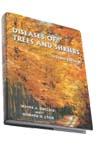 |
|
The Woman's Right: A Story of My Maine Grandmother, 1848-1927,
by Franklin F. Gould Jr. '66G, An absorbing nonfiction work, this is a graceful account of Elizabeth Foster Gould's struggles with marriage, motherhood and rural life just after the Civil War. |
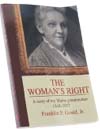 |
|
Fire Point: A Novel of Suspense,
by John Smolens '82G, Small town love and revenge are expertly unveiled in Smolens' sixth book.
|
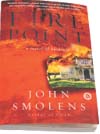 |
|
The Hidden Feelings of Motherhood: Coping with Mothering Stress, Depression and Burnout, 2nd edition,
by Kathleen A. Kendall-Tackett, UNH research associate professor of psychology, An excellent analysis of the stresses of modern mothering and the resources to remedy them. |
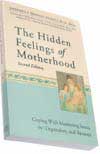 |
|
Thomas Curtis Van Cleve: Observations and Experiences of a Military Intelligence Officer in Two World Wars,
edited by John D. Davis '61, '63G, Davis, a student of Van Cleve's at Bowdoin, edited this interesting book about his military life from an unpublished manuscript.
|
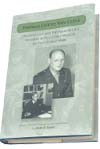 |
|
How High Can We Climb? The Story of Women Explorers,
by Jeannine Atkins '84G, Atkins writes for young readers 12 lively profiles of women explorers. |
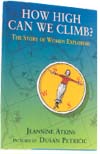 |
|
Music Bob Lord: Audio for Film, TV and Games, Red Fez Records, 2005. When he is not touring with his band, Dreadnaught, the prolific Bob Lord '98 is composing and producing music for various media. This record is an eclectic mix that will have you feeling like you are in an Eastern Bloc spy thriller one moment, and riding the range on some crazed horse the next. |
 |
|
Do You Know What It Means to Miss New Orleans? Music from UNH's Traditional Jazz Series,
produced by Bill Ross and Steve Cooper, This fabulous compilation of songs was culled from 27 years of live recordings. Every selection is a gem, including "Basin Street Blues" and "Struttin' With Some Barbecue." All proceeds go to Hurricane Katrina relief charities. |
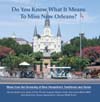 |
|
Also of Note... The Invisible Revolution: Clay Aiken and the Fans Who Made Him A Star, by Terry Piper '69, '74G. See at amazon.com |
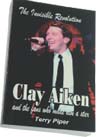 |
|
Ubiquitous Assessment: Evaluation Techniques for the New Millennium,
by Greg S. Goodman '73, '75G and Karen T. Carey. See at amazon.com |
 |
|
Lofty Dogmas: Poets on Poetics,
edited by UNH professor of English Deborah Brown, Annie Finch and Maxine Kumin. |
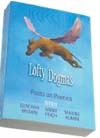 |

